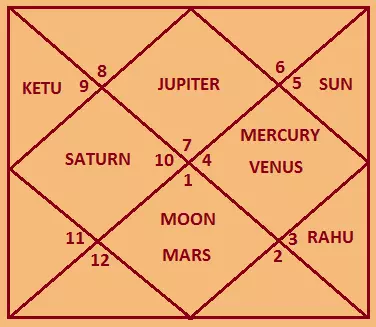Concept of Relative Motion in Astrology

Best Astrologer in India: - Dr.A.S.Kalra


Concept of Relative Motion in Indian Vedic Astrology
The concept of relative motion plays a crucial role in Indian Vedic Astrology (Jyotish Shastra). Unlike modern astronomy that considers the heliocentric (Sun-centered) model, Vedic astrology is based on a geocentric perspective—where Earth is treated as the central point of observation. This allows astrologers to understand and interpret planetary influences on human life as perceived from Earth.
1. Earth-Centered (Geocentric) Framework
Vedic astrology assumes that the Earth is the reference point for all celestial movements. Though scientifically the planets revolve around the Sun, astrology views the positions of the Sun, Moon, and planets as they appear from Earth. This geocentric model is essential to draw accurate horoscopes (Kundlis).
2. Apparent Planetary Motion
Due to relative positions and movements, celestial bodies appear to move in specific patterns when viewed from Earth. These apparent movements, although not actual physical motions, are fundamental to astrological calculations. For example, the Sun appears to move through the 12 zodiac signs over the year, which forms the basis of the Rashis (zodiac signs).
3. Retrograde Motion (Vakri Gati)
Some planets like Mars, Jupiter, and Saturn periodically appear to move backward in the sky. This is called retrograde motion or Vakri Gati in Sanskrit. It is purely a visual phenomenon due to relative speeds and orbital positions of Earth and the planets. Retrograde planets are believed to have altered or intensified effects in a birth chart.
4. Relative Speed and Visibility
The speed of planets as observed from Earth varies due to their distance and motion. Faster-moving planets like the Moon or Mercury influence short-term events, while slower planets like Saturn or Jupiter impact long-term cycles. The visibility and brightness of planets also change with relative motion, affecting their influence astrologically.
5. Motion and House Entry (Gochara)
Transits or Gochara involve tracking the movement of planets relative to the Moon’s position in the birth chart. The relative motion of planets as they enter different signs and houses helps astrologers time major life events such as career changes, relationships, and health concerns.
6. Eclipses and Shadow Planets
The concept of Rahu and Ketu (shadow planets) is also based on relative motion. These points are not physical bodies but are mathematically calculated positions where the orbits of the Sun and Moon intersect. Eclipses occur when these points align with the Sun and Moon, and they are considered significant in Vedic predictions.
7. Importance in Chart Interpretation
Understanding relative motion helps astrologers accurately determine:
- Planetary positions in signs and houses
- Timing of Dashas and Antardashas
- Strength and influence of retrograde planets
- Predictive insights based on planetary transitions
In conclusion, the concept of relative motion allows Vedic astrologers to interpret planetary energies as they affect life on Earth. Though the physical reality of planetary motion differs, astrology deals with symbolic and energetic interpretations rooted in Earth’s viewpoint—making relative motion a foundational principle in Jyotish Shastra.
